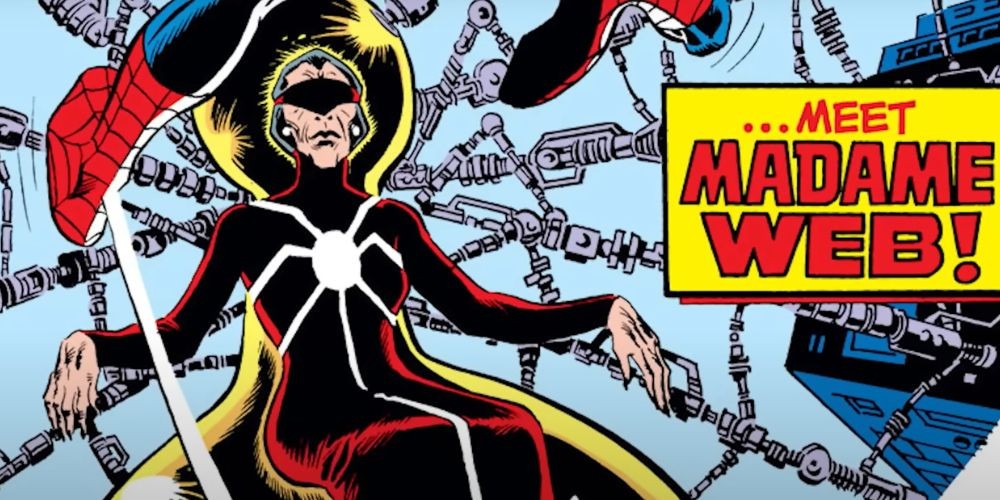Navigating the Spider-verse: Madame Web's Struggles in the Age of Internet Critique
- Jul 10, 2024
- 1455

Sony's relentless pursuit in expanding its Spider-verse has yielded varied receptions, often finding itself in the shadow of Marvel's more dominant superhero domain. One such endeavor, "Madame Web," has marked itself as one of the year's most ostensible failures at the box office. In the face of widespread derision, Emma Roberts, one of the film’s actors, has pointed the finger at 'internet culture,' attributing much of the film’s poor ratings to the pervasive trend of online critique and satire.
A Divergence in Spider Realms
The notion of developing an intricate web of stories around Spider-Man's universe is an ambitious endeavor. On one side, Marvel's Spider-Man consistently garners acclaim and box office success. Conversely, Sony's concurrent ventures into similar territory often struggle to find their footing. "Madame Web" has been no exception, emerging as a polarizing project. Despite the heavy anticipation, the film faltered, marking itself as a significant commercial disappointment.
Emma Roberts' Perspective
Emma Roberts, who portrayed a key role in the film, opines that the constant ridicule from online communities played a pivotal role in the film's poor reception. Speaking to Variety, Roberts passionately defended the movie and the efforts of its cast and crew. "I personally really loved Madame Web. And I really enjoyed the whole movie. I thought everyone in it was great. The director, S.J. Clarkson, I think did an amazing job. She's the reason I wanted to do that movie," she remarked. For Roberts, the film's downfall lay not in its content but in the prevailing 'internet culture' that tends to mock and satirize artistic creations incessantly.
The Impact of Internet Culture
In today's digital age, the internet wields substantial influence over public opinion. Social media platforms, blogs, and forums teem with personal reviews and memes, often amplifying negative sentiments and shaping collective perceptions. A single unfavorable review can snowball into widespread ridicule, potentially dissuading audiences from giving a film a fair chance. Roberts lamented this cultural shift, stating, "If it weren't for internet culture and turning everything into a joke, I think the reception would be different. And that's what annoys me about a lot of things, even things I've done, is that nowadays people just make such a joke out of everything."
Behind the Scenes: An Internal Divide
A film’s production and the sentiments of its actors can often provide deeper insights into its ultimate reception. While Roberts remained a staunch advocate of "Madame Web," not all shared her enthusiasm. Dakota Johnson, who played a prominent role alongside Roberts, has been outspoken about her dissatisfaction with the project. Unlike Roberts, Johnson harbored reservations about the movie from the outset, describing her experiences on set as largely unfavorable. Her public criticisms underscore a fundamental discord that might have contributed to the film's lukewarm reception.
Director S.J. Clarkson’s Vision
Key to Roberts' admiration for the project was S.J. Clarkson, the film's director. Renowned for her visionary approach, Clarkson endeavored to bring a unique flair to the Spider-verse. Although her vision resonated with some of the cast, it appears that the broader audience failed to connect with it similarly. Every director brings their unique perspective and narrative style, but not every attempt aligns with the tastes of the wider audience. Clarkson, despite her prowess, faced an uphill battle in converting a niche storyline into mainstream appeal.
The Broader Implications of Internet Culture
The phenomenon that Roberts highlights is not exclusive to "Madame Web." Numerous films and artistic projects have faced the brunt of internet culture. At its best, the internet democratizes critique, giving voice to diverse opinions. At its worst, it can breed a toxic environment where mockery overshadows constructive criticism. For creators, this presents a complex challenge: navigating the fine line between innovation and expectation, all while bracing against the unfiltered judgments of the online community.
Defining the Line Between Critique and Mockery
Film critique has always played a crucial role in shaping cinematic standards. Historically, reviews by seasoned critics offered audiences nuanced perspectives. However, the rise of internet culture has democratized this space, allowing everyone to be a critic. While this inclusivity brings forth diverse viewpoints, it often dilutes the essence of informed critique. Memes, satirical reviews, and bandwagon criticism frequently eclipse genuine, well-reasoned opinions, adding to the challenges faced by filmmakers and actors alike.
Charting the Future: Lessons from Madame Web
Despite its tumultuous reception, "Madame Web" offers valuable lessons for future endeavors. For one, it underscores the critical importance of understanding audience dynamics in the digital age. Engaging with online communities and addressing their expectations can help bridge the gap between creative vision and audience acceptance. Additionally, robust marketing strategies that pre-emptively counter potential negative buzz can prove beneficial.
Balancing Artistic Vision with Audience Expectations
Creating art that resonates on a broad scale requires striking a balance between artistic vision and audience expectations. While it's impossible to please everyone, understanding and addressing potential points of contention can mitigate the risk of widespread derision. Collaboration between directors, writers, and marketing teams can pave the way for more nuanced storytelling that appeals to diverse viewership segments.
As "Madame Web" recedes into the annals of cinematic attempts, its journey offers a thought-provoking glimpse into the evolving interplay between film, critique, and the omnipresent influence of the internet. Whether Emma Roberts' defense holds weight or Dakota Johnson’s criticisms prevail, one thing is clear: the landscape of cinematic reception has fundamentally changed, forever intertwined with the digital dialogues of our time.